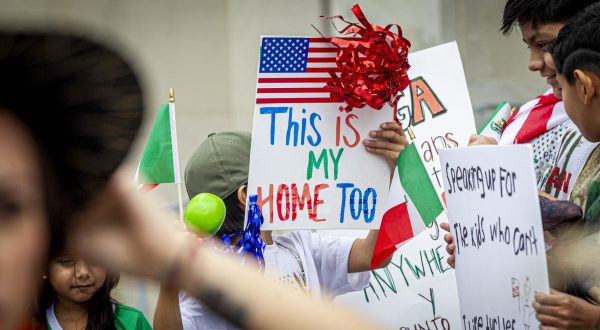Is the U.S. Doing Enough to Help Iranian Protesters?
Following the death of 22-year-old Mahsa Amini, anti-government protests have been met with violence by the Iranian government. Estimates of up to 233 deaths as a result of these clashes show that Iran’s government is not willing to listen to its people, and the U.S. must take firm steps toward condemning the government and showing support for the thousands of protesters risking their lives daily in pursuit of personal freedoms.
Amini, a Kurdish Iranian woman, was detained by morality police for not wearing her hijab correctly. Although the morality police maintain that she died of natural causes, protesters claim she was beaten to death in response to her improper wearing of the hijab. The theocratic government of the Islamic Republic of Iran has a history of unfair and undemocratic elections, with the Ayatollah having held power since 1989.
Protesters have faced horrific human rights violations from the government of Ayatollah Ali Khamenei and President Ebrahim Raisi in the wake of this police-related death. Women in particular are taking to the streets to protest the government in the face of oppressive crackdowns by the theocratic rule.
According to Human Rights Activists News Agency (HRANA), at least 32 of the deaths thus far have been people under the age of 18, which highlights the nature of the movement as defined primarily by young women and girls. This is reminiscent of the 2009 anti-government protests in Iran following a young woman being publicly killed, with Former President Barack Obama taking weak steps toward supporting the country’s protesters. Thankfully, President Biden has taken a different approach thus far, quickly siding with protesters in an address to the United Nations.
However, these protests come at a difficult time diplomatically, as the U.S. has been attempting to cut Iran off from the rest of the world in order to prevent further nuclear developments in the country. Biden must balance the threat of nuclear development with his commitment to human rights when considering sanctions imposed on Iran. According to an NPR article from Oct. 6, some sanctions have been removed for technology companies in an effort to support protesters’ access to the internet following a government shutdown in response to protests.
Director of the Strategic Litigation Project at the Atlantic Council Gissou Nia argued that while the effort to support protesters at this point in time is well-intentioned, U.S. sanctions placed on Iran prior to these mass protests are what forced the Iranian people to rely on government-run internet services in the first place, making them vulnerable to the oppressive regime. Nia claims that this limited internet access aided the government in finding political dissenters, making it easier for them to crack down once protests sparked in early September.
Can Biden keep the possibility of a renewed nuclear deal alive while also aiding protesters who are being killed by their own government? Depending on the priorities of the U.S. government, Iranian protesters, and Iranian women more specifically, will continue to die in pursuit of human rights and equality. While Obama’s response to protests in 2009 was criticized as being too weak, the Biden administration has the chance to make a firm claim of support for human rights in Iran.

Annabel Morris is a senior from Rumson, NJ concentrating in political science and minoring in Middle East & Islamic studies and anthropology. She has...







